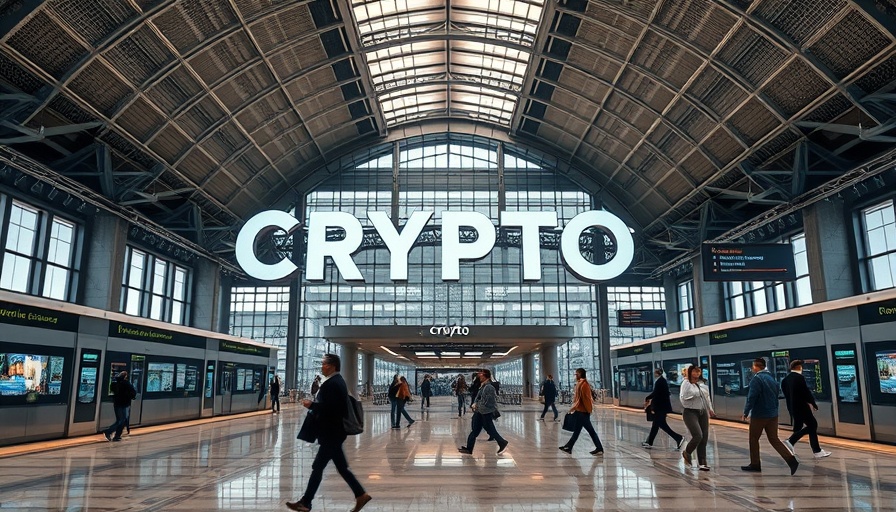
The Rise of Decentralized AI: A New Frontier
As generative AI (GenAI) continues to shape various industries, its convergence with blockchain technology marks a groundbreaking evolution known as decentralized AI (deAI). This innovative intersection is not just a technological marvel; it holds the potential to transform the digital assets landscape significantly. Amid these advancements, organizations face challenges regarding privacy, security, and intellectual property as they navigate the exciting yet complex world of AI.
Understanding Decentralized AI
Decentralized AI merges the efficiencies of AI with the transparency and security of blockchain technology. This fusion allows the use of AI crypto tokens to facilitate transactions, grant access to AI services, and promote collaborative efforts within the ecosystem. Unlike traditional centralized GenAI platforms, deAI projects offer benefits like transparency, decentralized control, and inclusivity, enabling developers, users, and autonomous agents to interact and learn in shared environments. Noteworthy projects in the deAI space include SingularityNET and Fetch.ai, both pioneers in creating open-source and marketplace platforms for AI development.
Navigating Legal Complexities in Decentralization
At the heart of the deAI initiative are pressing legal and governance issues, notably around intellectual property (IP) and data ownership. Centralized AI models like ChatGPT have faced copyright disputes over the data used to train their algorithms, often raising questions about ownership and fair usage. Decentralized AI platforms, however, promise solutions through blockchain technology, which grants users more control and compensates data contributors fairly. For instance, Sahara AI encapsulates this vision by allowing contributors to collaborate and monetize their AI models and datasets.
Governance Challenges Ahead
Despite its potential, deAI faces significant governance hurdles. Most regulations currently in place assume a centralized entity responsible for data protection and compliance. However, decentralized platforms lack such identifiable controllers, creating a challenge for aligning with existing legal frameworks. There are also operational challenges to consider, such as scalability concerns inherent in blockchain infrastructures. These hurdles could impede the rapid adoption of deAI, keeping centralized GenAI platforms at the forefront for the time being.
Future Predictions and Trends
The advent of decentralized AI is expected to stimulate various industries by redefining ownership and engagement within the digital asset space. Experts believe that addressing the governance and scalability challenges will be critical for deAI to rival traditional platforms effectively. If successfully overcome, the implications of deAI could usher in a more democratized and inclusive approach to AI, where contributors and users alike benefit from engaging with intelligent systems.
How to Leverage the Decentralized AI Movement
Organizations looking to harness the potential of deAI must prioritize transparency and ethical governance. By implementing solid governance frameworks tailored to decentralized technologies, businesses can mitigate risks while capitalizing on the unique advantages offered by deAI. However, staying informed about ongoing changes in regulatory landscapes and technological advancements will be key to maximizing opportunities in this space.
Call to Action: Engage with Decentralized AI Today!
The fusion of blockchain and AI is redefining the digital landscape. By understanding and adapting to decentralized AI technologies, organizations can not only improve operational efficiencies but also contribute to a more equitable digital future. Stay current with the latest in AI news to seize the myriad opportunities presented by this innovative frontier!
 Add Row
Add Row  Add
Add 




 Add Row
Add Row  Add
Add 

Write A Comment